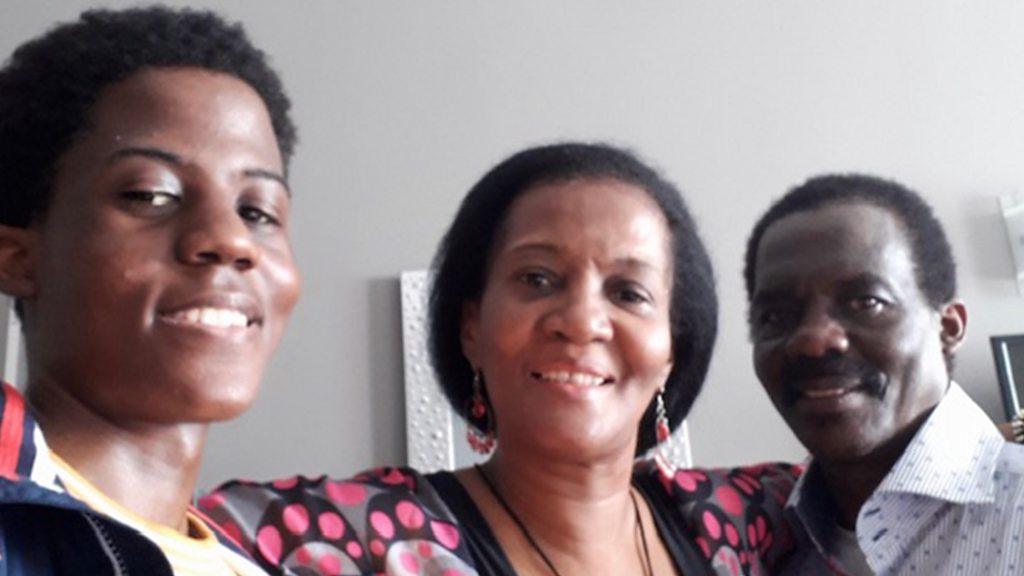Sickle cell disease: Patient's 'excruciating' wait for pain drugs
- Published
Sickle cell: Patient claims hospital has failed to follow care plan
A man with sickle cell disease says he has been repeatedly left in agony at A&E after hospital staff failed to give him the medication he needs.
John Griffiths said he had been left suffering "excruciating, extreme throbbing pain" for hours.
Staff at Kent's Darent Valley Hospital routinely failed to follow a care plan, stating he should be given morphine injections within 30 minutes, he said.
The NHS trust has apologised and said doctors would work with Mr Griffiths.
His wife, Jen Griffiths, has called on the hospital to improve education for staff about how to treat sickle cell disease.
The hereditary condition causes red blood cells to become sickle shaped and can cause debilitating pain, known as sickle cell crisis, when blood vessels become blocked.
Mr Griffiths, from Ebbsfleet, goes to A&E for extra medication when the pain becomes unbearable, but he says his agreed care plan is often not followed unless his family intervene.
'Extremely vulnerable'
At times the pain is so great that he can not speak, the 37-year-old said.
"I know that I need to speak to try and get through to these people what I need, but there's times I just can't get up and I can't move my head," he said.
"It feels like I'm extremely vulnerable and it brings me to a place really where I'm quite on my knees."
Mr Griffiths has made complaints about his treatment over five years.
In May the Dartford and Gravesham NHS Trust, which runs Darent Valley Hospital, apologised for his care plan "not being adhered to" and for the added distress that causes.
The trust told the BBC it was "very concerned not to resolve his original concerns following actions earlier this year".
It added: "Emergency medicine clinicians will work with him and take advice from their sickle cell lead to make sure they can make a suitable plan".

Follow BBC South East on Facebook, external, on Twitter, external, and on Instagram, external. Send your story ideas to southeasttoday@bbc.co.uk.
Related topics
- Published17 September 2021
